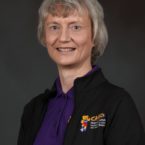Abstract
Comprehensive physical literacy assessments can be time-consuming and require a gymnasium space and examiner training. This project sought to identify easy-to-administer tasks, suitable for all physical activity and healthcare settings, which could quickly screen a group of children to identify those most likely to benefit from an in-depth assessment or additional physical literacy support. The 40 potential screening tasks were compared with the Canadian Assessment of Physical Literacy among 226 children (57% female) aged 8 to 12 years. Absolute body mass index z-score above 0.67 or predilection for physical activity less than 31.5/36 points had the highest sensitivity (81% and 83%, respectively) and specificity (45% and 52%, respectively). Predilection less than 31.5 combined with absolute body mass index z-scores achieved 81% sensitivity and 64% sensitivity. When the selected tasks were repeated on a different sample of 71 children (50% female), results were similar with the combination of predilection and absolute body mass index achieving 92% sensitivity and 53% specificity. Predilection for physical activity, absolute body mass index z-score, and a combination of the two are quick and easy screening tasks suitable for all physical activity settings that can identify children likely to need additional support for a physically active lifestyle. Novelty: Physical literacy screening can be completed in recreation, education, allied health, coaching and healthcare settings. Predilection for physical activity and body mass index z-score quickly identify children needing physical literacy support.
Researchers
-
Patricia Longmuir
Senior Scientist, CHEO Research Institute

